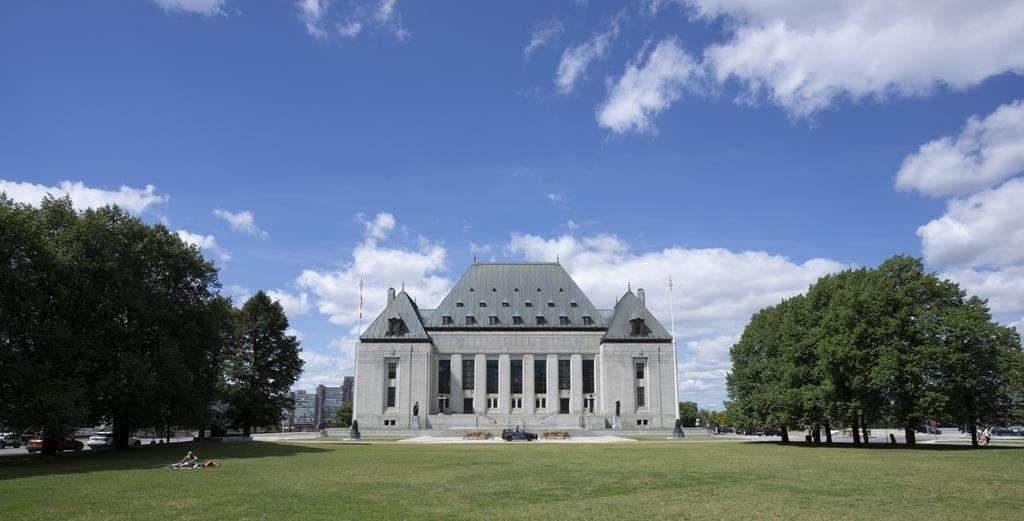Canada's top court will deliver the final word Friday on whether the pact between Canada and the United States to control the flow of asylum seekers violates their fundamental rights.
The Safe Third Country Agreement, which came into effect in 2004, recognizes Canada and the U.S. as safe places for potential refugees to seek protection.
Under the agreement, refugees must seek asylum in the first of the two countries they land in, making it illegal to cross the border and seek asylum in the other country.
Opponents of the treaty asked the top court to declare that the legislation underpinning the pact violates the right to life, liberty and security of the person, saying the U.S. is not actually safe for many asylum seekers.
The Canadian government argued to Supreme Court justices that returnees have access to fair asylum and detention processes south of the border.
Prime Minister Justin Trudeau and U.S. President Joe Biden agreed to expand the treaty in March so that it would apply along all 8,900 kilometres of the shared border, not just at official crossings.
Before then, a loophole allowed asylum seekers who arrived between official points of entry along the land border to make claims in Canada despite having arrived in the U.S. first.
Opponents of the pact have said it runs counter to the Charter of Rights and Freedoms, because returning people to the U.S. exposes them to risks in the form of detention and other rights violations.
The Supreme Court's decision will finally put to rest the long-standing legal battle first launched by several refugee claimants in Federal Court in 2007.
The Canadian Council for Refugees, the Canadian Council of Churches and Amnesty International also participated in the proceedings as public interest parties.
The first challenge was successful, but was later overturned. A repeated attempt by the same group of organizations that began in 2017 saw the same outcome.
In both cases, the applicants, who are citizens of El Salvador, Ethiopia and Syria, arrived at a Canadian land entry port from the U.S. and sought refugee protection.
In her 2020 decision, Federal Court Justice Ann Marie McDonald concluded the Safe Third Country Agreement results in ineligible claimants being imprisoned by U.S. authorities.
Detention and the consequences flowing from it are "inconsistent with the spirit and objective" of the refugee agreement and amount to a violation of the rights guaranteed by Section 7 of the Charter, she wrote.
"The evidence clearly demonstrates that those returned to the U.S. by Canadian officials are detained as a penalty."
The Federal Court of Appeal overturned her decision in 2021.
Last year, Canada received 20,891 refugee claims from people who crossed the border outside of an official border crossing, federal data show.
In the first three months of 2023, before the agreement was extended to apply to the entire border, Canada received 14,192 refugee claims from irregular border crossers.
This year's expansion of the agreement removed unofficial crossings such as Roxham Road in Quebec as viable options for potential asylum seekers to get to Canada.
The Supreme Court heard arguments in the case before Trudeau and Biden announced that update.
Amnesty International has said the updated agreement creates an even more dangerous and unfair situation for people seeking asylum in Canada.
This report by The Canadian Press was first published June 16, 2023.




Comments